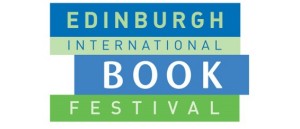Edinburgh International Book Festival: Museums and Libraries – Spaces for Literacy
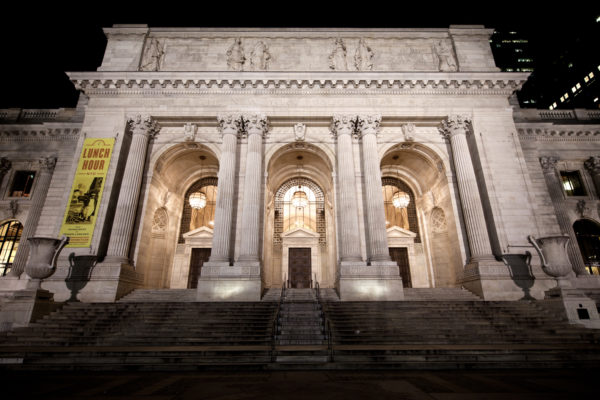
Tony Marx, the President of the New York Public Library, likes to tell a story about Polish telephone directories; it’s a story a colleague told him when he suggested getting rid of a roomful of the things. At the end of the Second World War, the Polish authorities were denying restitution claims on the basis that there were no Jews living permanently in Warsaw in 1939. The library had the one remaining copy of the city’s telephone book – and it was this very book that proved that the authorities were wrong.
Tony Marx is speaking at the Edinburgh International Book Festival; he and his fellow panelists, curator Clementine Deliss and sociologist Richard Sennett, together with chair, writer Ken Worpole, are considering what city libraries and museums are for – do they matter? And what impact do they have on the life of the city itself? Deliss, Worpole and Sennett are all members of Theatrum Mundi, a forum in which architects, artists and researchers think about cultural and public spaces in modern cities. What should these spaces look like? And in the 21st century do their functions need to change?
 Libraries in the UK are struggling. Their funds have shrunk – some have even been shut down; in 2013 Moray Council closed seven of its fifteen libraries. We are told that people don’t go to libraries any more – they may like the idea of The Library as an institution, but they buy their books online – if at all. (One local librarian told me that whilst the whole village campaigned if the library was threatened, hardly anyone came near it at other times – and it’s borrowing numbers that councils base their decisions on).
Libraries in the UK are struggling. Their funds have shrunk – some have even been shut down; in 2013 Moray Council closed seven of its fifteen libraries. We are told that people don’t go to libraries any more – they may like the idea of The Library as an institution, but they buy their books online – if at all. (One local librarian told me that whilst the whole village campaigned if the library was threatened, hardly anyone came near it at other times – and it’s borrowing numbers that councils base their decisions on).
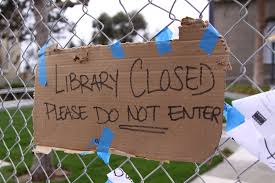 In New York the financial situation may have been equally parlous, but New Yorkers didn’t take the cuts lying down (not even with a good book…). There are 217 public libraries in the city; they receive over 40 million visits per annum (more, says Tony Marx, than all the NYC museums and sports teams put together, ‘Just saying…’) and they’ve recently received a huge grant from public funds. This city understands the centrality of libraries; the New York Public Library is one of the most prestigious in the world. In a country that we may see as a monument to capitalist, profit-driven ideology, public libraries are thriving. How did this happen? And how does Tony view their future?
In New York the financial situation may have been equally parlous, but New Yorkers didn’t take the cuts lying down (not even with a good book…). There are 217 public libraries in the city; they receive over 40 million visits per annum (more, says Tony Marx, than all the NYC museums and sports teams put together, ‘Just saying…’) and they’ve recently received a huge grant from public funds. This city understands the centrality of libraries; the New York Public Library is one of the most prestigious in the world. In a country that we may see as a monument to capitalist, profit-driven ideology, public libraries are thriving. How did this happen? And how does Tony view their future?
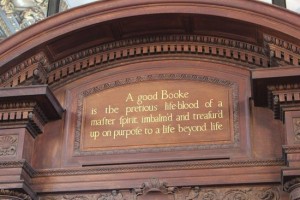 NYC libraries provide internet to three million New Yorkers who don’t have it at home. They back up the creaking public school system with library services and pre and after school learning. Tony sees their most important, crucial, role as the free sharing of knowledge; he doesn’t just like the internet, he loves it, and he wants to ensure that every good book in the world is online so that everyone can access it,
NYC libraries provide internet to three million New Yorkers who don’t have it at home. They back up the creaking public school system with library services and pre and after school learning. Tony sees their most important, crucial, role as the free sharing of knowledge; he doesn’t just like the internet, he loves it, and he wants to ensure that every good book in the world is online so that everyone can access it,
‘Imagine the explosion of creativity if we can supply all this information to everyone’.
In the meantime his libraries are committed to providing hard copies of the quality information that isn’t yet out there in cyberspace. He doesn’t see the internet as any kind of threat; he doesn’t think books will become obsolete, but if they do the role of libraries will, he says, be more important than ever; information will be protected in a way that physical books can’t always be,
‘libraries are crucial to a functioning economy and a functioning democracy’
In a world where people are increasingly isolated, Tony sees libraries as the front line of resistance to ‘the gated community society’. It’s not only knowledge that’s shared there, it’s human life.
‘We are the free space of civic society in New York; there is nowhere else’.
Ken Worpole agrees; ‘The library has moved from collection to connection; it has a new role’.
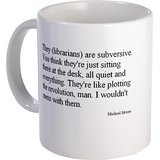 All this inspiring talk places the emphasis on sharing, communality, the breaking down of barriers, the antidote to exclusivity and privilege. Richard Sennett is a dyed-in-the-wood socialist but, he says, in public spaces not everyone likes to be doing everything with everyone else. In opera houses, singers don’t want to rehearse in front of other people; in offices, open-plan designs actually seem to reduce productivity. Have we, asks Sennett, made a fetish of openness? Perhaps people need to be sheltered from the public eye while they ‘create knowledge’? If it is impossible to justify financial expenditure on something before you know what it is, so artists can’t be expected to show their work to the public before they’ve made it.
All this inspiring talk places the emphasis on sharing, communality, the breaking down of barriers, the antidote to exclusivity and privilege. Richard Sennett is a dyed-in-the-wood socialist but, he says, in public spaces not everyone likes to be doing everything with everyone else. In opera houses, singers don’t want to rehearse in front of other people; in offices, open-plan designs actually seem to reduce productivity. Have we, asks Sennett, made a fetish of openness? Perhaps people need to be sheltered from the public eye while they ‘create knowledge’? If it is impossible to justify financial expenditure on something before you know what it is, so artists can’t be expected to show their work to the public before they’ve made it.
Sennett sees justification – especially of the financial sort – as anathema to the development of knowledge. Deliss agrees; old art schools had private studios for teachers to work on their own projects – now they’re expected to turn up, teach and go away again. She is keen on holding seminars in public areas of museums, and even encourages students to go and lie down in them, to challenge traditional expectations of what those spaces are for. 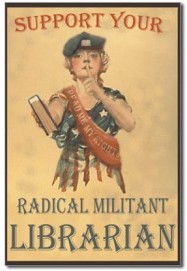 In South Africa students are going into libraries and deliberately changing the classification system; Deliss sees this as a wonderful usurping of oppressive, outdated ideas; Sennett praises the possibility of wandering through the book stacks not knowing what you might come across. An alternative interpretation (as an audience member points out) might be that it’s a highly irritating and irresponsible act.
In South Africa students are going into libraries and deliberately changing the classification system; Deliss sees this as a wonderful usurping of oppressive, outdated ideas; Sennett praises the possibility of wandering through the book stacks not knowing what you might come across. An alternative interpretation (as an audience member points out) might be that it’s a highly irritating and irresponsible act.
This is all very well, but if local councils haven’t enough money to fund even a small part of the demands made upon them, just how much can they be expected to pay for ‘non-essential services’, much less spaces for people to ‘be private’ in? The panel doesn’t really address this question, though Marx acknowledges that finances have to be taken into consideration. Whilst you can’t put a monetary value on knowledge, people don’t often die for a lack of a book or an exhibition (and I say this as a lifelong library supporter).
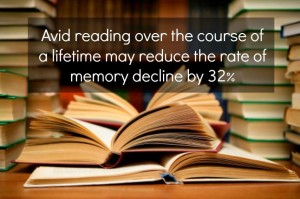 A Scottish librarian in the audience comes to the rescue here – though I’m not sure that the panelists think they needed rescuing. He makes the excellent point that research has proven the economic value of libraries and reading; money spent on making books accessible is money well spent because it produces a better, healthier society and even a more capable workforce. It saves money in the end because people who read don’t feel so isolated and are probably less likely to become mentally ill. Whether or not we like the idea of justification, for the moment we have to put up with it and this is an argument that’s more likely to persuade governments, both local and central, than any talk of artistic integrity, subversion of the autocracy or even personal enfranchisement.
A Scottish librarian in the audience comes to the rescue here – though I’m not sure that the panelists think they needed rescuing. He makes the excellent point that research has proven the economic value of libraries and reading; money spent on making books accessible is money well spent because it produces a better, healthier society and even a more capable workforce. It saves money in the end because people who read don’t feel so isolated and are probably less likely to become mentally ill. Whether or not we like the idea of justification, for the moment we have to put up with it and this is an argument that’s more likely to persuade governments, both local and central, than any talk of artistic integrity, subversion of the autocracy or even personal enfranchisement. 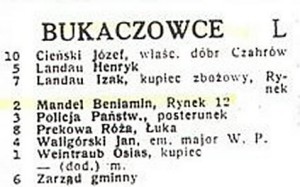 In fact Matt Haig and Tony Bradman made very similar points in the Siobhan Dowd Trust lecture last Sunday.
In fact Matt Haig and Tony Bradman made very similar points in the Siobhan Dowd Trust lecture last Sunday.
So what about that Polish telephone directory? Marx’s point – echoed by all of the panelists – is that it’s impossible to predict what knowledge will be valuable in the future. Picking and choosing, assigning worth to some things and none to others, is simply not an option; we have to keep all of it. And that, for him, is where the internet comes in; Sennett and Deliss seem less convinced, though the latter shows some powerful slides of the museum in Tunis, its walls full of bullet holes, ‘This is a wake-up call: there is a precise and ominous destruction going on’.
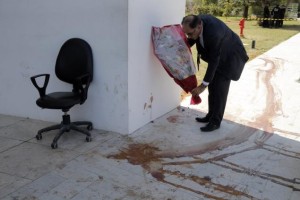 For me these panel discussions are the best part of the Book Festival; this one was hugely engaging and could have gone on for hours. I would have liked to have heard more about the practical ways in which libraries might be reinvigorated; Marx said that, at least in the USA, both public and private funders will be swayed by the reading = health arguments, but whether these will win through in the UK remains to be seen.
For me these panel discussions are the best part of the Book Festival; this one was hugely engaging and could have gone on for hours. I would have liked to have heard more about the practical ways in which libraries might be reinvigorated; Marx said that, at least in the USA, both public and private funders will be swayed by the reading = health arguments, but whether these will win through in the UK remains to be seen.
This session was one of three taking place at the Book Festival as part of Spaces for Literacy project; two workshops were also held at the Signet Library. For more information about the Spaces for Literacy project visit Theatrum Mundi here.
Images: subversive librarian mug by CafePress; Tunis Museum by Christophe Ena/AP; New York Public Library by James Maher Photography.




